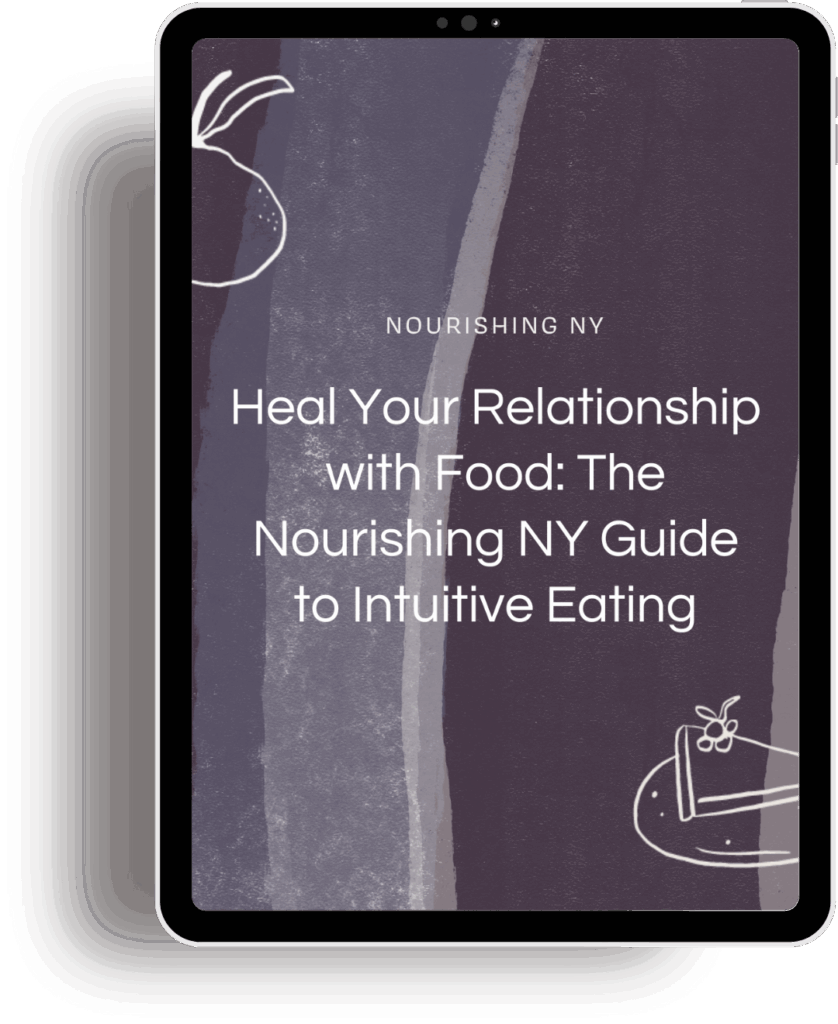Diet talk is visible in every part of our lives. Whether you are at a family barbecue this summer, chilling with your friends at the beach, or scrolling through social media, diet talk can easily find its way into the conversation. Though common, diet talk has repercussions and is beneficial to no one. Hearing comments about the restriction of foods and over-exercising causes these behaviors to become normalized both for the speaker and the listener. It influences feelings of guilt and shame about food, exercise, and body image. These feelings can spur unhealthy and dangerous behaviors of restriction, which can turn into disordered eating patterns. It is time to ditch the diet talk and find healthier ways to talk about food, body, and exercise, as well as build deeper connections with the people around you.
What is diet talk and why is it harmful?
Diet talk occurs when discussing the restriction of foods, restriction of food groups, or excessive exercise in order to try to change one’s body. Diet talk includes conversation such as labeling foods or assigning foods a moral value, for example calling an apple a “good” food and a cookie a “bad” food. Diet talk is misleading because there are no “good” and “bad” foods. Foods do not have a moral value and all foods fit into a diet that nourishes both your body and mind! This may not seem harmful on the surface, but diet talk has harmful consequences. When a food is assigned a moral value, you might apply this moral value to yourself based on what food you eat. Because diet talk has you label an apple as “good” and a cookie as “bad”, you might see yourself as a good person for eating the apple or a bad person for eating the cookie. This mindset can lead to guilt and restriction when a “bad” food is consumed. A person may think that restricting “bad” foods makes them a good person, or that eating that cookie makes them a bad person. Moralizing food in this way can play a role in eating disorder development and has no benefit to the person.
Moralizing food can make someone feel that they are morally right when they eat those–wrongly labeled–“good” foods because they are “supporting” health. This thought process is directly tied to diet culture—the glorification of losing weight at all costs. Diet culture and moralization of food can contribute to disordered eating patterns. When self-worth is tied to food choices, you can feel that you should punish or reward the body based on the foods consumed, especially through exercise—rewarding the body with rest when “good” food is eaten and punishing with exercising when “bad” food is eaten. Symptoms of eating disorders include extremely restricted eating or intense and excessive exercise, relentless pursuit of thinness, and intense fear of gaining weight. These are all behaviors that are mediated by the moralization of food through diet talk.
Why is diet talk so prevalent?
If diet talk is so harmful, then why is it so prevalent? In the early 1860s losing weight through dieting became popularized by William Banding. By the 1920s the thin flapper body was in vogue. Dropwaist dresses meant that the curvy and padded Gibson Girl was out and weight loss was popularized even more so. Unlike the Gibson Girl body, which was achieved through corsetry and padding added to clothing, the thin ideal that was promoted in the 1920s was only achievable through physical weight loss. Not only was being thin becoming fashionable, but health insurance companies began to use Body Mass Index to categorize people, making it easier to get health insurance if you were smaller-bodied. Many diets and body ideals came and went, but weight loss was seemingly always emphasized. Weight Watchers was founded in 1961, and in the late 1960s, the British model Twiggy became popular. Her thin build and success increased the emphasis on weight loss to fit a body ideal. The Adkins diet came out in the 1970s and was popularized again in the 1990s. Oprah Winfrey advertises for Weight Watchers and Kim Kardashian promoted the Adkins diet after she gave birth. Now influencers tout their own diet rules on Instagram and try to sell diet and workout programs. Diet culture has been built on the bodies of celebrities and is upheld by both mainstream celebrities and influencers, ensuring that they will remain profitable no matter the cost to society. Because of this, it is no wonder that diet talk is so normalized.
Since it is so easy to talk about and so ingrained in our culture, diet talk seems like a safe subject when making small talk. It feels safer to say that you’re cutting out all sugar than to talk about politics. For someone who is deep within diet culture, discussing food restrictions may feel as casual as talking about the weather. Diet talk feels like an easy way to connect to the people around you. Many people won’t think twice about moralizing food through diet talk, but just because it is normalized, does not mean that it should be, or that this moralization of foods is positive.
What to say instead of diet talk
If diet talk is so pervasive because it is a core part of conversation and small talk, then how do we interact without discussing restriction and moralization of foods? We must connect in other ways and remove diet culture from our thought processes.
The first step to eliminating diet talk is to stop believing in it.
If you believe in the moralization of food yourself, then it will be more difficult to keep it out of your day-to-day conversations.
The second step to removing diet talk from your own vernacular is to find different ways to connect.
Since we use diet talk as a way to connect to one another, we must find a different common ground. Focus on other subjects in casual conversation and small talk. Ask about family, friends, and work. One great question to start a conversation is to ask if anything new or exciting has happened instead of starting conversations with a “how are you?”.
Be able to greet people without commenting on their weight.
There is never any reason to bring up someone’s body. It does not matter if you feel like you are complimenting them or if you “are worried”. You have no right to make comments or share opinions about how someone’s body looks or has ever looked. Greet people with a hello, and introduce yourself. If you feel like you need to make a compliment, then tell them that you like their shirt, their hair color if it is dyed a cool color, or maybe they have an interesting tattoo. Do not make comments about their size, even comments such as “you look so good!” or “you look healthy!”. No matter what you say, it could be triggering and upsetting for someone to hear it.
How to respond to diet talk. Shut it down!
Now that you know how to stop initiating diet talk, how do you respond to diet talk and shut it down?
1. Do not engage. Just because someone brings up their current fad diet or talks about their weight, does not mean that you have to contribute to the conversation. If you are unsure of how to respond, the best response may be to keep quiet. This could even stop the diet talk in its tracks.
2. Make a joke. If someone tells you that a certain food is “bad”, you can respond with a joke such as “the only food that is bad is food that you’ve stolen!”.
3. Educate. When someone starts to talk about “cutting out all sugar” or “getting beach body ready” take the opportunity to explain why that language and mindset is not healthy.
4. Leave the conversation. If you try all other options and are unable to shut down the diet talk, it may be easiest to remove yourself from the conversation. You are not obligated to stay in a situation that triggers feelings of guilt and shame. When all else fails, walk away.
5. Find a new group of friends. If you tell your friends that diet talk makes you uncomfortable and they do not make an effort to cut back, this may not be the group for you. You can take this as an opportunity to find friends that support you in your pursuit to ditch diet talk.
References:
https://www.whattosaynow.org/what-is-diet-talk-and-why-is-it-harmful/
https://www.aafp.org/dam/AAFP/documents/patient_care/fitness/AllFoodsFit.pdf
https://colleenchristensennutrition.com/diet-talk-how-to-respond-what-to-say/
https://www.whattosaynow.org/what-to-say-instead/
https://plantablenutrition.com/diet-talk-why-its-harmful-and-how-to-handle-it/
https://fattyliverdisease.com/moralizing-food/
https://behavioralnutrition.org/what-is-diet-culture/
https://themilsource.com/2022/02/07/the-problems-with-diet-culture-and-moralizing-food/



